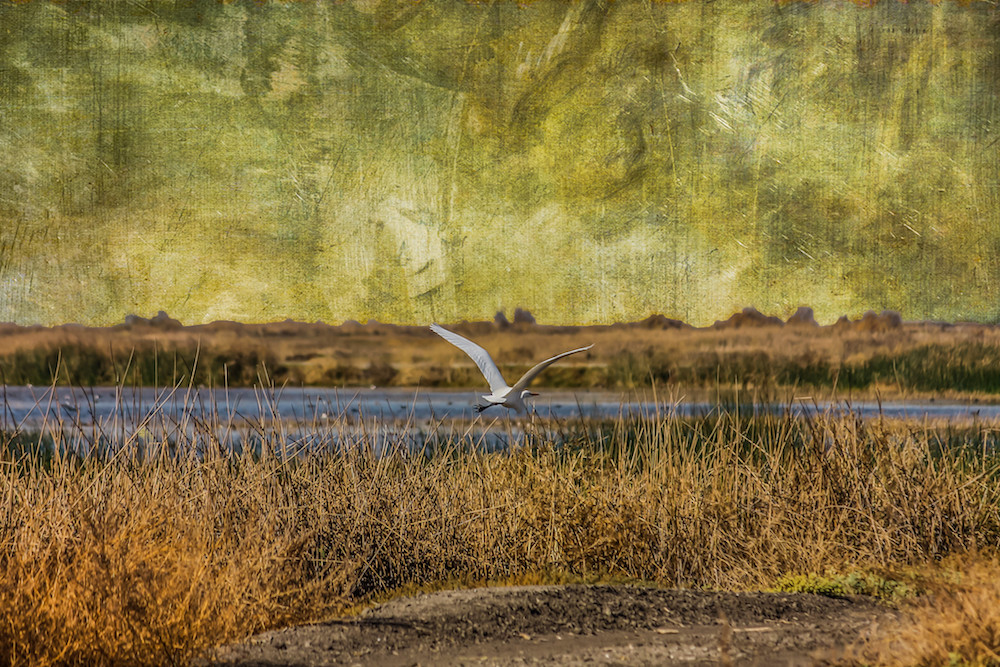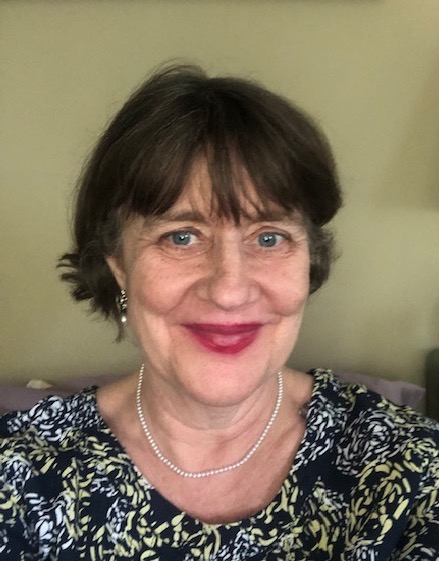Poetry by Sheila Black

Corona Archive #3: Day
Arrived/as a crane, Celan wrote, killing himself in 1970 in Paris.
I wake this morning with the pale crane feathers sifting through what is left of night. We occupy ourselves making blueberry scones using the sourdough starter my daughter wakes in the middle of night to tend to, along with the baby, who is so pleased with her small fat life of balloons and smiling, climbing stairs.
Arriving. It arrives like a crane. I am slightly terrified by this morning as conceived of as a bird or simply a lightening.
The baby does not have to wear a mask, but the rest of us do as we wheel her across the park.
A disco song makes me giddy in front of the little window where I buy raspas to see us back across the hot pooling tarmac. March and already 98°F.
Arrived/as a crane, over the denuded lakes and emptying of the oceans.
We’ve stopped talking about global warming now that there is the pandemic, but nothing changes. The bird that flies over the sea to the last mountaintop is still, presumably, flapping along.
I’m telling my daughter why I do not want to scuba dive in the ocean again. Saying it makes it more real—scared of what I am sure I would no longer see. I know if I saw it—that newer emptiness—I would remember all the things that had once been there in even more vivid detail. But shouldn’t I desire this, she asks me.
Celan could not recover from the dislocation of the black milk or morning. He could look into their faces a long time and see only cruelty had plucked them.
The way in fairy tales crows pluck the eyes of thieves, sinners, killers, but in real life just the rivering of more time—and after a while this froze inside him.
No, that’s just my story. A way I can picture a person feeling as if they hold in their chest the entire vastness of a sky or what Homer said about Odysseus meeting his mother in Hades: Three times I threw my arms around her, and three times she passed through.
I wonder about the half-advertent suicides. About a person who writes about a wing in the sky. A clear wing in the sky. A pear or a cherry. Whose cosmology seems at every moment motivated by the smallest sweet things one knows intimately without quite knowing.
Like cherry taste or the peculiar downiness of certain birds, which one does not actually touch, which one knows only as the appearance of downiness.
In the park, watching all the masked people, we are overcome by the most prickly and blowsy form of general tenderness; we can hardly bear the hollow sound it leaves.

A Real Mouse
The problem of the shoes I bought
cheap from the store in the lobby because
I was afraid to leave—black plastic
men’s slippers. They squeaked as I walked
the halls from the ICU nursery to
whatever bed they would put me in that night,
a program for mothers of gravely ill
babies so we could sit by the incubators
through the long violet hours and watch
the monitors or the chests covered
in tubes or the soles of the tiny red
feet. Above your incubator, one of the aides
had taped a sign, two-feet high, in black marker:
“Be Good To This Foot.” The squeak of the shoes
was like a mouse in a cartoon, and I pictured
it scampering ahead of me, a real mouse,
panicked and breathing in this world where
everything was so large. I followed him when I
could not bear the black melon inside,
the irrational thought that I had let something
go that still belonged in my body. I could
imagine this emptiness continuing on like
the halls of cool flickering fluorescent, the undersides
of the hospital where you saw odd items
discarded—a doughnut on a chair, a 1960s
paperback with a picture of a woman smoking a
cigarette through red lips. One night as I trudged
in the nurses pointed at your incubator and put
their fingers to their lips—you were keening,
singing, the whale sound of something calling
to its familiars. I want to say I never doubted
you would survive. I want to say I never
knew a person could contain so much hope.
Publishing Information
- “Arrived/as a crane” is from the poem “In the Daytime” by Paul Celan, translated by Michael Hamburger (Persea Books, 1972).
- “Three times I threw my arms around her, and three times she passed through” is from Odysseus, the Hero of Ithaca by Homer, edited by Mary E. Burt, translated by Zénaïde A. Ragozin (originally published by Scribner's, 1903).
Art Information
- “Retreat” © David Seibold; Creative Commons license.
- “Brutkasten Erleuchtet 2” © Stefan Gara; Creative Commons license.
 Sheila Black is the author of four poetry collections, a co-editor of Beauty Is a Verb: The New Poetry of Disability (Cinco Puntos Press, 2011), and a co-founder of Zoeglossia, an organization for poets with disabilities. Her poems have appeared in Poetry, The Spectacle, So to Speak, New York Times, and other places. She lives in San Antonio, Texas.
Sheila Black is the author of four poetry collections, a co-editor of Beauty Is a Verb: The New Poetry of Disability (Cinco Puntos Press, 2011), and a co-founder of Zoeglossia, an organization for poets with disabilities. Her poems have appeared in Poetry, The Spectacle, So to Speak, New York Times, and other places. She lives in San Antonio, Texas.
